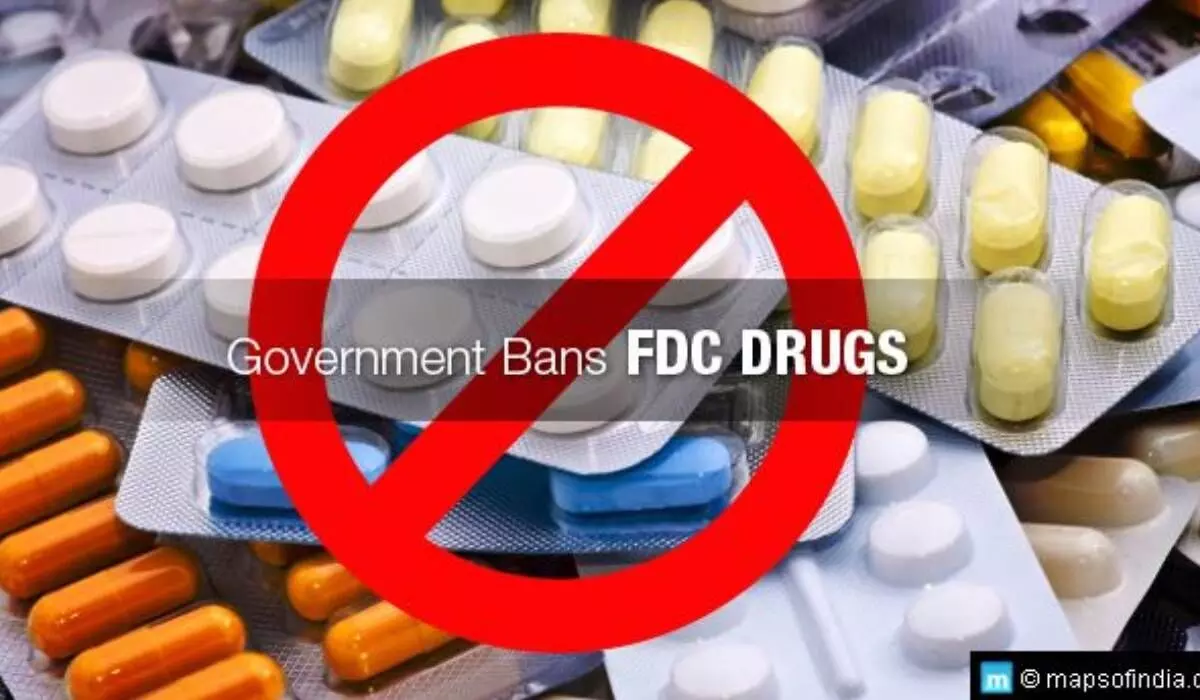Ban on 14 FDC medicines will restore image of Indian pharma industry
FDCs are combinations of two or more active ingredients in a fixed dosage ratio
image for illustrative purpose

In an action that is certain to change the way the world views the Indian pharmaceutical industry world over, the Union Health Ministry recently banned manufacture, sale and distribution of 14 Fixed Dose Combination (FDCs) drugs, which were licensed before 1988. The banned drugs include widely used cough syrups, anti-allergy drugs and pain-relief drugs. In the banned list are well-known brands like Nimesulide and paracetamol dispersible tablets and Chlopheniramine Maleate and Codeine syrup. The decision was taken as ‘there is no therapeutic justification for these medicines and they may put people at risk’.
FDCs are combinations of two or more active ingredients in a fixed dosage ratio. It is a fact that the combination drugs have proved to be particularly useful in the treatment of infectious diseases like HIV, hepatitis-C, malaria and tuberculosis, where giving multiple antimicrobial agents is the norm. FDCs are also useful for chronic conditions, especially when multiple disorders co-exist.
Over the years, the pharmaceutical market in India was flooded with FDCs and subsequently a hue and cry was raised by experts about the safety and therapeutic justification of these combination drugs.
As the outcry reached its crescendo, the government constituted an expert committee under Prof C.K. Kokate to examine the issue threadbare.
Based on Prof Kokate report, the health ministry banned 349 controversial FDCs in 2016. These 14 FDC drugs were among the 349 combination drugs which were banned by the Central Government through an order on March 10, 2016, based on the recommendations of the Kokate Committee, in public interest as use of these FDCs were mentioned as likely to involve risk to human beings when safer alternatives are available.
Several stakeholders approached various High Courts against the ban and the Delhi High Court quashed the ban on December 1, 2016. The Central government appealed in the Supreme Court and the apex court, in its judgment on December 15, 2017, recommended that the case of 349 FDCs banned by the Centre, except for the 15 FDCs that are pre-1988 approved and 17 FDCs which have DCGI approval, to be referred to the Drugs Technical Advisory Board (DTAB) for further examination. In respect of 15 FDCs claimed to be approved prior to September 21, 1988, the Supreme Court set aside the notifications banning them as these cases were never meant to be referred to the Kokate Committee. The DTAB then appointed a sub-committee headed by Nilima Kshirsagar to look into these FDCs.
The 14 FDC drugs which were prohibited recently by the Health Ministry through a notification included Nimesulide+ Paracetamol dispersible tablets, Amoxicillin+ Bromhexine, Pholcodine + Promethazine, Chlorpheniramine maleate + Dextromethorphan + Guaiphenesin + Ammonium Chloride + Menthol, Chlopheniramine Maleate + Codeine Syrup, Ammomium Chloride + Bromhexine + Dextromethorphan, Bromhexine + Dextromethorphan + Ammonium Chloride + Menthol, Dextromethorphan + Chlorpheniramine + Guaiphenesin + Ammonium Chlorid, Paracetamol + Bromhexine + Phenylephrine + Chlorpheniramine + Guaiphenesin, Salbutamol + Bromhexine, Salbutamol + Bromhexine, Phenytoin + Phenobarbitone sodium, Ammonium Chloride + Sodium Citrate + Chlorpheniramine Maleate + Menthol (100mg + 40mg + 2.5mg + 0.9mg) , (125mg +55mg+4mg+1mg), (110mg+46mg+3mg+0.9mg) and (130mg+55mg+3mg+0.5mg)per 5ml syrup and Salbutamol + Hydroxyethyltheophylline (Etofylline) + Bromhexine.
Of course, the Union Health Ministry’s latest action is part of the government's intention to supply only efficacious medicines for patient safety at large. The ministry has taken a well-thought out decision as the image of the Indian pharmaceutical industry has been getting a severe beating due to a series of adverse comments from abroad.
Recently, the Department of Drug Control Administration of Nepal published a list of 16 manufacturing facilities of Indian pharmaceutical companies for failing to comply with the WHO-GMP), which is the drug manufacturing standard adopted by a large number of countries. Earlier, the Indian pharmaceutical industry’s image was shattered when the WHO issued alert against four contaminated medicines-- Promethazine oral solution, Kofexmalin baby cough syrup, Makoff baby cough syrup and Magrip N cold syrup--manufactured by Haryana-based Maiden Pharmaceuticals that resulted in the death of 66 children in Gambia.
Of course, the two rather unpleasant incidents are a blot on the image of the country, which has over the years donned the epithet of ‘the pharmacy capital of the world’ with the country exporting medicines to over 200 countries, including developed nations like the US and the UK.
(The author is freelance
journalist with varied experience
in different fields)

